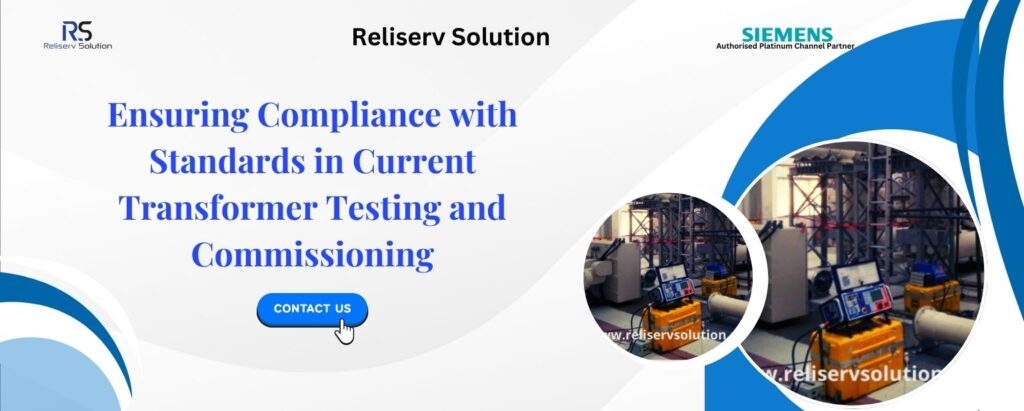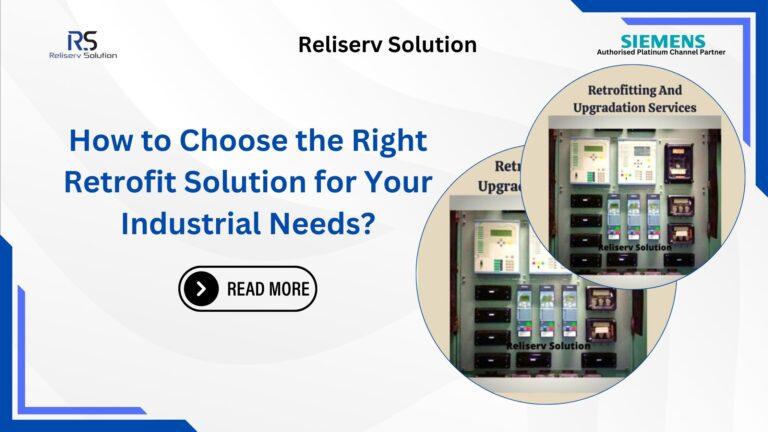In today’s highly connected and rapidly evolving electrical systems, the reliability and efficiency of Current Transformers (CTs) and Potential Transformers (PTs) are more critical than ever. These transformers serve as the cornerstone of power measurement, protection, and control in electrical networks. Ensuring their proper Current Transformer Testing is vital for both safety and performance, but it’s equally important to ensure these processes comply with industry standards and regulations.
Failure to adhere to these standards can lead to catastrophic failures, financial losses, and even legal consequences. Therefore, a structured approach to Current Transformer (CT) and Potential Transformer (PT) Current Transformer Testing, coupled with a commitment to regulatory compliance, is essential for smooth operations in any power system.

Importance of Standards in Current Transformer Testing
Testing and commissioning of CTs and PTs go far beyond simple diagnostics. They are essential steps that help ensure the transformers perform their designated functions accurately and safely. Compliance with international standards such as those from the International Electrotechnical Commission (IEC) and the Institute of Electrical and Electronics Engineers (IEEE) is mandatory for transformers to perform optimally in a wide range of conditions.
These standards are designed to establish consistency in electrical systems globally, allowing for interoperability, improved safety, and enhanced reliability. Additionally, adhering to these standards during CT and PT testing ensures that all parameters — including accuracy, insulation integrity, and overall performance — meet the required benchmarks.
Why is Compliance So Important?
There are several reasons why adhering to standards is crucial during CT and PT testing:
- Safety: Non-compliance can lead to failures that might cause equipment damage or personnel injury.
- Performance Optimization: Current Transformer Testing ensures that transformers function properly under real-world conditions, guaranteeing their accuracy and reliability.
- Legal Requirements: Many regions enforce stringent regulations related to electrical equipment. Non-compliance could result in fines or operational shutdowns.
- Longevity: Regular Transformer Testing and Commissioning, as per standard protocols, extend the operational life of transformers by identifying potential issues before they escalate.
Our team of experts, with vast experience across Low Voltage (LV), Medium Voltage (MV), High Voltage (HV), and Extra High Voltage (EHV) systems, provides comprehensive testing and commissioning services for both Air Insulated Switchgear (AIS) and Gas Insulated Switchgear (GIS) setups. From partial discharge measurements to thermography, we ensure that your CTs and PTs comply with all industry standards.
Key Services Offered in Current Transformer Testing
Ensuring that a CT or PT complies with standards involves various specialized tests and measurements. Each test checks a specific aspect of the transformer’s performance, contributing to a thorough evaluation.
- Partial Discharge Measurement: Partial discharge measurement is critical in detecting insulation faults within the transformer. Partial discharges are small electrical sparks that occur in insulation materials, indicating a potential breakdown. Conducting partial discharge measurements as part of CT and PT testing is an essential step toward ensuring the long-term reliability of switchyard equipment. It helps identify weak points in the insulation before they lead to catastrophic failures. Compliance with IEC 60270 standard for partial discharge testing ensures that the measurements are accurate, repeatable, and globally recognized.
- Leakage Current Measurement: Leakage current measurements, especially for Lightning Arresters (LAs), play a crucial role in assessing the health of the equipment. Leakage currents can indicate problems in the insulation or improper installation. Regular measurement and monitoring ensure that the CT or PT operates within safe and efficient parameters. Leakage current testing is an essential compliance measure in many industries, particularly in high-voltage applications. It helps detect early signs of degradation in insulation, thereby preventing failures and enhancing the reliability of the entire system.
- Thermography: Thermal imaging, or thermography, is a non-invasive method of detecting potential issues in transformers. It identifies temperature anomalies, which could indicate insulation failure, loose connections, or overloading. Thermography is particularly valuable in preventing overheating and ensuring the long-term reliability of MV/EHV equipment. By applying thermographic inspection during commissioning and routine testing, compliance with standards such as IEC 60076-18 (thermal performance testing) is achieved. This ensures that thermal hotspots are identified and corrected before they lead to significant damage or inefficiencies in operation.
The Role of Advanced Testing Equipment in Compliance
Another important aspect of ensuring compliance with standards is the use of advanced testing equipment. Outdated or inadequate testing tools may lead to incorrect data, increasing the likelihood of non-compliance. Our team employs state-of-the-art equipment that not only delivers precise results but also speeds up the Current Transformer Testing process, eliminating the need to depend on external resources.
By using advanced, high-precision tools, we are able to comply with stringent standards like IEC 61869-2, which outlines the specifications for CTs and PTs. Our tools allow for accurate testing, even in complex and high-voltage environments, ensuring that no aspect of the transformer’s performance is overlooked.
Current Transformer Testing Across Voltage Levels
Current transformers and potential transformers operate across different voltage levels, from low voltage (LV) to extra high voltage (EHV). Each voltage class has unique requirements when it comes to testing and commissioning.
- Low Voltage (LV) Systems: In LV systems, the emphasis is often on accuracy in metering and protective relaying. Ensuring compliance in these systems involves testing for accuracy class conformity and conducting insulation resistance tests.
- Medium Voltage (MV) Systems: In MV systems, thermal performance and insulation integrity become more critical. Thermography and partial discharge measurements are essential at this level to detect any early signs of malfunction.
- High Voltage (HV) and Extra High Voltage (EHV) Systems: Testing in HV and EHV systems is perhaps the most critical due to the significant risks involved. Compliance with standards becomes even more crucial in these environments, where the failure of a CT or PT could result in massive damage to both the equipment and the network.
For each voltage level, our team tailors its approach to ensure that the testing meets the specific compliance requirements, all while ensuring that the equipment functions optimally in real-world conditions.
Benefits of Professional CT and PT Testing Services
Choosing a professional team to handle the Current Transformer Testing of your current and potential transformers offers several advantages:
- Accuracy and Reliability: Professional services ensure that all testing is conducted in strict accordance with industry standards. This means more reliable results and fewer chances of overlooking potential problems.
- Time Efficiency: With advanced testing equipment and experienced personnel, our team can complete testing and commissioning tasks faster without compromising quality.
- Comprehensive Services: We offer a full range of services, from partial discharge measurement to thermography, ensuring that every aspect of your CT or PT’s performance is tested.
- Long-Term Savings: By detecting issues early, professional testing services prevent costly repairs and equipment downtime in the future.
Conclusion
Current Transformer and Potential Current Transformer Testing are critical components of any power system’s operation. Ensuring compliance with international standards not only enhances the safety and performance of your transformers but also protects your investment in the long term. From partial discharge measurement to thermography and leakage current testing, our comprehensive services ensure that your transformers meet all the necessary compliance requirements.
By employing advanced Current Transformer Testing equipment and offering services across all voltage levels, from LV to EHV, we ensure that your CTs and PTs are not only functional but fully compliant with global standards. Compliance is more than just a regulatory obligation — it’s a pathway to greater efficiency, reliability, and safety in today’s complex power systems.
Reliserv Solution is a leading and authorized Current Transformer Testing Service Provider, as well as a Platinum Channel Partner of Siemens. Mumbai, Maharashtra, is home to the company’s main headquarters. In addition, we provide a wide range of services and tailored solutions for different panel builders and industries. If you need help or have any questions, please contact us by phone for Current Transformer Testing Service cost at +917506112097 or by email at [email protected]. Click here to view the Current Transformer, Potential Transformer Testing & Commissioning Services.



